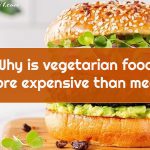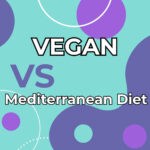Veganism Vs. Omnivores; Are Vegans Healthier Than Omnivores?
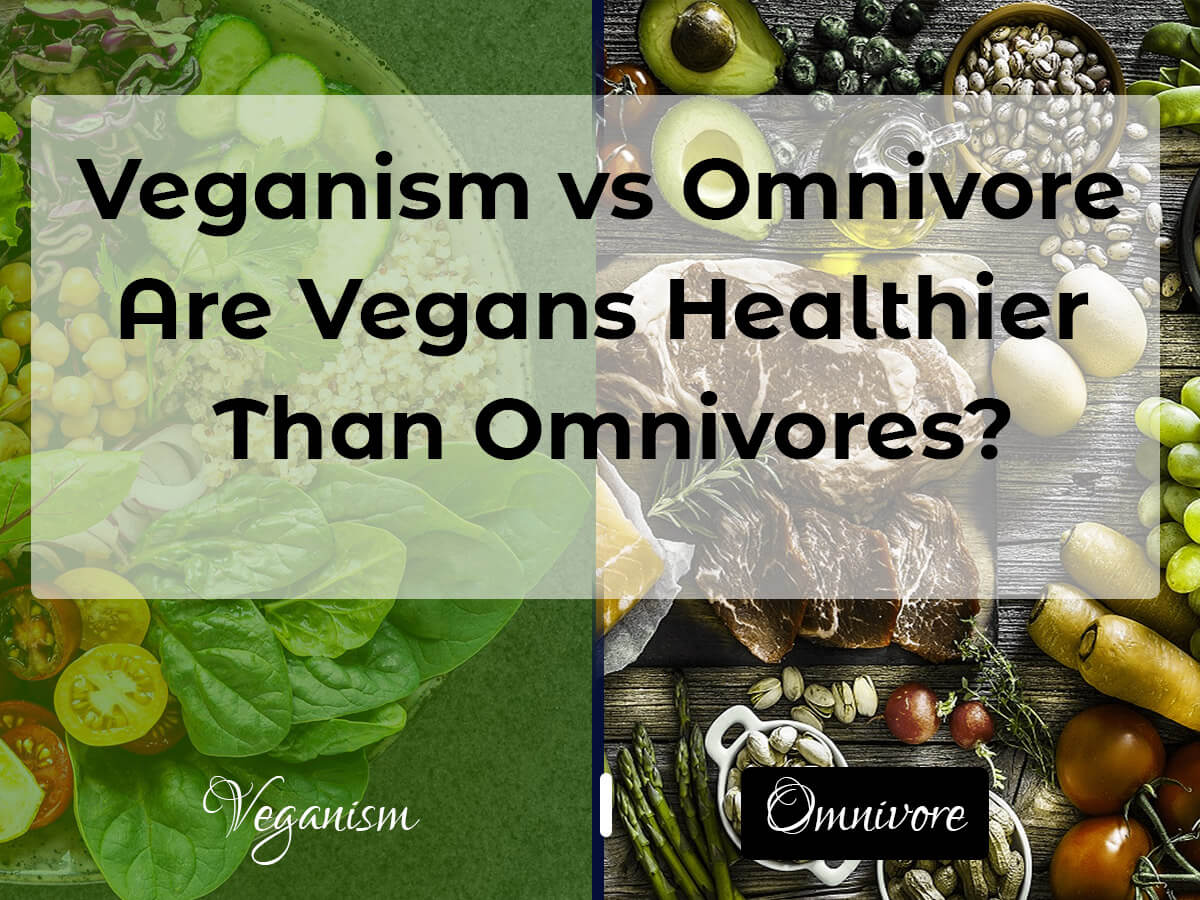
Hey there! Welcome to a discussion that can make a real difference in our lives and world.
Today, we’re diving into the fascinating realm of dietary choices and exploring the captivating question: “Are vegans healthier than omnivores?”
Veganism isn’t just about the animals (although their welfare is incredibly important!). It’s also about nourishing our bodies and protecting our planet.
On the other hand, Omnivores are more thinking about having a more delicious meal, but wait a moment, does that necessarily mean it is harmless?
In this article you will read:
1. Definition of Veganism
A lifestyle that revolves around vibrant fruits, crunchy veggies, and a lot of plant-powered goodness.
It’s like a colorful adventure for your taste buds! So, what’s the deal with veganism, you ask?
Well, it’s all about embracing a diet centered around plants. You know, leafy greens, juicy tomatoes, crispy bell peppers—the whole shebang!
It’s like giving your body a big, plant-powered hug. But it’s not just about what you eat—it’s about the positive impact it can have on your health.
You’re doing your body a huge favor by loading on nature’s bounty.
2. Definition of Omnivores
Alright, let’s talk about our omnivorous friends! They’re the ones who enjoy a little bit of everything on their plate.
Now, while omnivores have a wide range of options when it comes to their meals, there are a few things we need to address.
Focusing on animal-based foods can have a few health risks.
Think about it: too much red meat can contribute to heart disease and high cholesterol levels. It’s like a not-so-friendly reminder that moderation is key.
Now let’s dig in to determine if vegans are healthier than omnivores.
Risk of Heart Disease & Stroke
Do you know what’s awesome about being a vegan? It turns out that vegans have a lower risk of heart disease and stroke than their meat-eating buddies, the omnivores.
When you follow a vegan diet, you’re all about the plants. You load up on fruits, veggies, whole grains, legumes, nuts, and seeds and skip out on meat and seafood.
One of the big reasons for this is that a vegan diet tends to be lower in saturated fat and cholesterol.
You’re automatically cutting down on these artery-clogging culprits by ditching the meat.
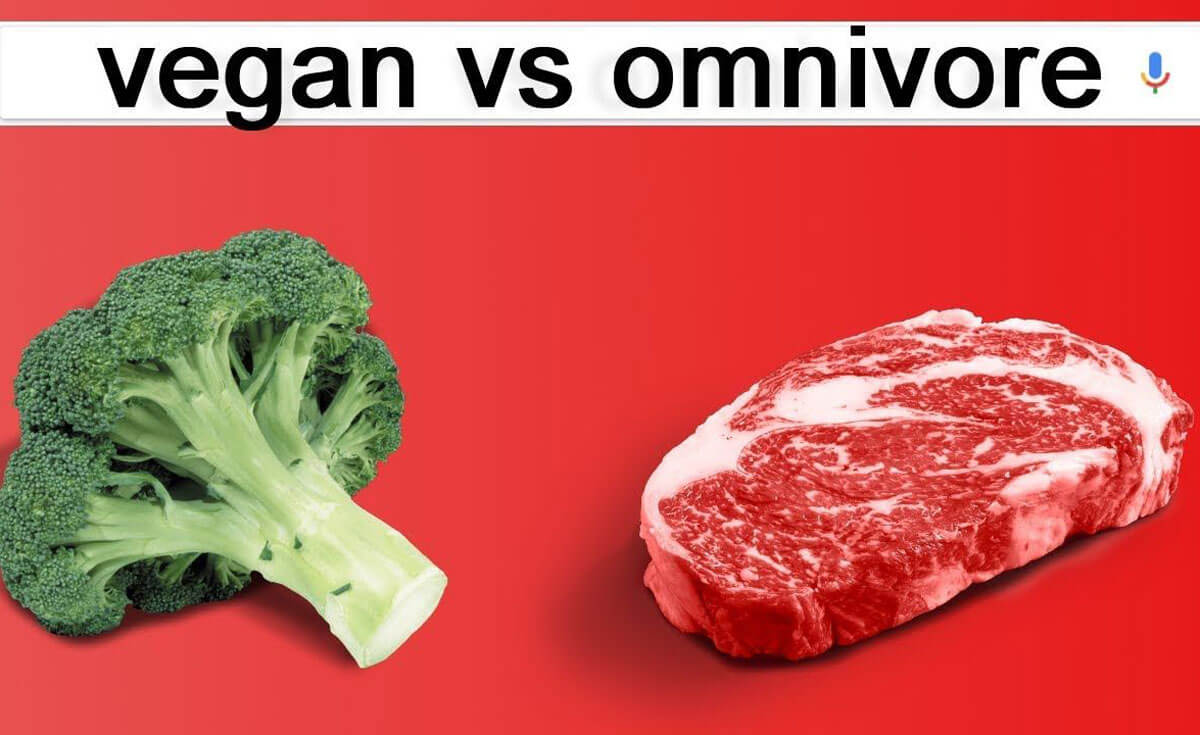
Maintaining Healthier Blood Pressure Levels
One of the key advantages of a vegan diet is its positive impact on blood pressure.
A diet rich in fruits and vegetables contains wonderful nutrients like potassium, magnesium, and fiber.
These fantastic components work together like superheroes, fighting off high blood pressure and keeping your ticker happy.
Potassium, abundant in fruits and veggies, helps to relax your blood vessels, allowing blood to flow more freely.
Up to now, vegans are healthier than omnivores since it helps to regulate blood pressure by relaxing your blood vessels and supporting healthy nerve function.
Levels of “Bad” LDL Cholesterol
When we talk about LDL cholesterol, we’re talking about the kind that can clog up our arteries and put our heart health at risk. Not good, right?
Well, studies have shown that vegans who skip meat and all animal products often have lower levels of this “bad” cholesterol.
When you go vegan, you focus on consuming more fruits, vegetables, whole grains, legumes, and nuts.
On the other hand, our omnivorous buddies tend to consume more meat and animal products, which can be higher in saturated fats.
Type 2 Diabetes
Studies have shown that following a vegan diet can lower your risk of developing type 2 diabetes compared to omnivorous buddies who consume both plants and animals.
One of the reasons behind this magical effect is that vegan diets are often lower in unhealthy fats and cholesterol found in animal products.
Instead, you get a whole bunch of nutrient-packed goodness from plant-based sources, which makes vegans healthier than omnivores.
Now, don’t get me wrong. Being an omnivore doesn’t automatically mean you’re doomed to get diabetes. It’s all about making healthy choices and balancing your meals.
Weight Management
One of the fantastic perks of being a vegan is that you’re less likely to struggle with weight issues.
Yep, that’s right! Studies have shown that vegans tend to have lower body mass indexes (BMIs) than their meat-eating friends.
And that whole makes a lot of sense since plant-based diets are generally lower in calories and saturated fats.
Veganism isn’t just about what you exclude from your plate; it’s also about what you include!
Veganism might be your secret weapon if you dream of rocking that fabulous summer body or fitting into those jeans from years ago!
Getting Cancers
Now, relying on studies and research regarding the big “C” word (cancer), r the vegan crew seems to have a leg up.
They have a decreased risk of certain types of cancer compared to their omnivorous pals. One of those cancers is colon cancer, which affects the large intestine.
But it doesn’t stop there! Veganism has also been linked to a reduced risk of breast cancer, primarily affecting the ladies.
Another strong and certain yes to whether vegans are healthier than omnivores.
Fiber & Digestive Health
First off, vegans tend to get a ton of fiber in their diet. Do you know what fiber does?
It’s like a superhero for your digestive system. It helps keep things moving smoothly and keeps your tummy happy.
And guess what? Plant-based foods, like fruits, vegetables, legumes, and whole grains, are loaded with fiber!
When you chow down veggies, your digestive system gets a break from processing heavy meats.
Meat can take quite a while to break down in your stomach. But with a vegan diet, your body can focus on absorbing all the good stuff from those colorful, nutrient-packed plants.
Antioxidant
Vegans consume more antioxidant-rich fruits and vegetables than their omnivorous buddies. And you know what? That’s a real bonus for their overall health!
Antioxidants help protect our cells from damage, boost our immune system, and keep us feeling our best.
These choices provide vegans with a hefty dose of antioxidants that can improve their health.
Meanwhile, our omnivorous pals tend to focus more on animal-based products.
Now it is the time for you to judge; feel free to answer this question: Are vegans healthier than omnivores?
Cholesterol & Cardiovascular Health
Now, when we compare vegans to omnivores, there’s a key difference in how their diets impact their hearts.
You see, vegans have naturally free diets from animal products, including meat, dairy, and eggs. And that’s a big deal when it comes to our cardiovascular health.
Animal products are often high in saturated fat and cholesterol, clogging up our arteries and increasing the risk of heart disease.
While omnivores often consume animal products high in saturated fat (think juicy burgers and creamy cheese), vegans focus solely on plant-based foods.
Phytochemicals
Plant-based diets are rich in phytochemicals, which are bioactive compounds found in plant foods that have been linked to various health benefits.
Vegan diets are rich in phytochemicals, which are bioactive compounds found in plant foods that have been linked to various health benefits.
They have antioxidant properties and can help protect our cells from damage caused by harmful free radicals. Flavonoids, a phytochemical, are abundant in fruits, vegetables, and dark chocolate.
So that means one more point for the vegan fellows in the competition of omnivores!
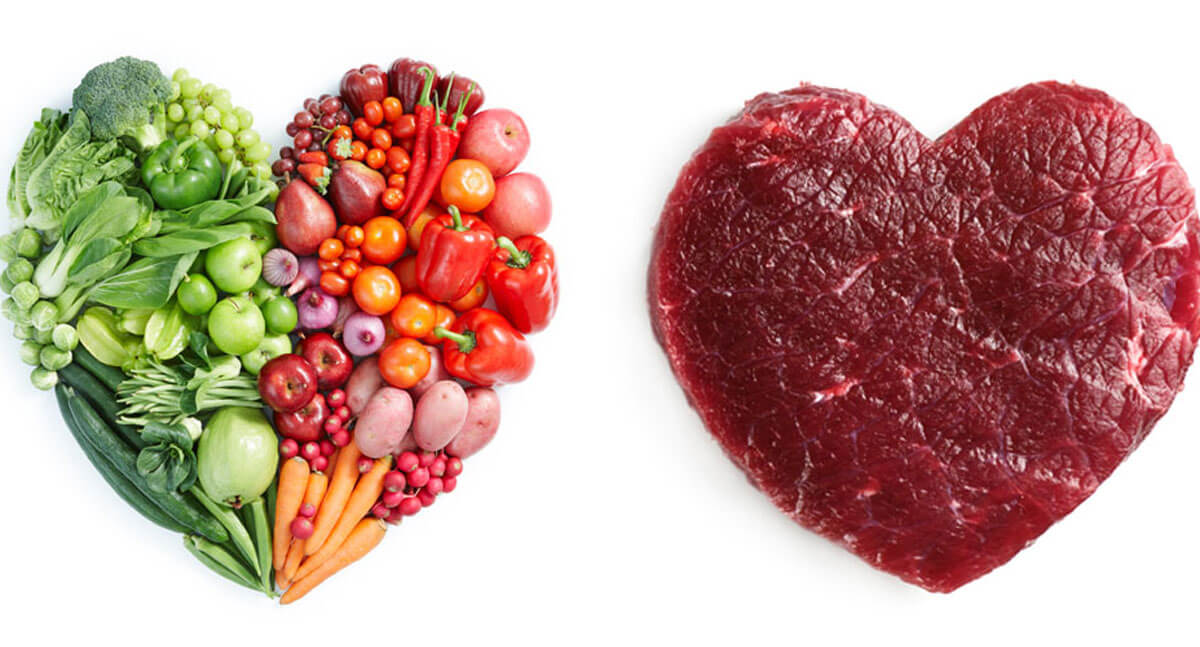
Gallstones & Gallbladder Disease
Regarding gallstones, those pesky little formations in the gallbladder, research suggests that vegans have a lower incidence.
That means they’re less likely to have these painful stones causing trouble down the road.
Well, the culprits behind gallstone formation are often cholesterol and certain types of fat.
While our meat-eating friends tend to consume higher amounts of these, vegans, who rely on plant-based foods, generally have lower levels of cholesterol and healthier fats in their diet.
TheirTheir gallbladders get a bit of a break and are less prone to developing those pesky stones.
But it’s not just gallstones where vegans have the upper hand. They also have a lower risk of gallbladder diseases overall.
The gallbladder can sometimes get inflamed or infected, causing cholecystitis.
Kidney Stones
Although being an omnivore doesn’t automatically mean you’re doomed to have kidney stones, studies suggest that following a vegan lifestyle might give you an edge in reducing the risk.
When you munch on a vegan diet, you’re more likely to consume more fruits, vegetables, whole grains, and legumes.
These plant-based goodies are packed with fiber, vitamins, and minerals and are lower in animal proteins and sodium.
These factors can play a role in keeping those pesky kidney stones at bay.
One of the key reasons behind this connection is hydration. Plant-based foods often have a higher water content, helping to keep you well-hydrated.
And when you’re hydrated, your urine is more dilute, which makes it less likely for kidney stone-forming substances to crystallize and stick together.
That is how vegans are healthier than omnivores and have a painless life compared to omnivores’ friends.
Promoting a Healthier Gut & Diverse Microbiome
When it comes to the gut, vegans have a tremendous advantage. Plant-based diets are loaded with fiber, like a superhero for your gut.
Fiber acts as fuel for the good bacteria living in your digestive system. It’s like throwing a massive party for the beneficial microbes, making them dance happily and multiply like crazy.
Now, it is time to shift our focus to the omnivores.
Let’s face it: animals don’t come with much fiber. The gut bacteria in omnivores might need more to munch on, resulting in a less diverse microbiome.
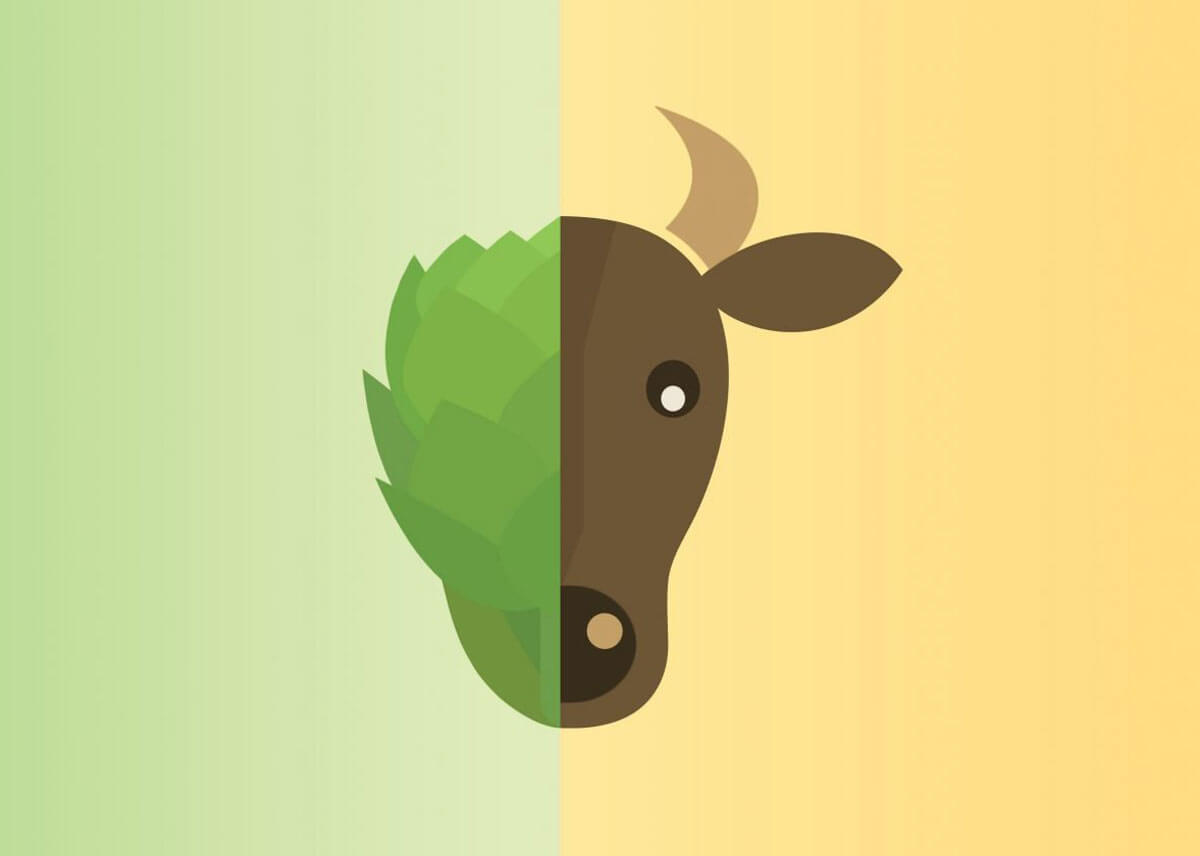
Living Longer & Having Lower Overall Mortality Rates
Being a vegan is like being part of this cool club where you enjoy various plant-based foods while doing your body some serious good.
One of the perks of being a vegan is that it tends to lead to a longer lifespan.
Yep, you heard it right! Studies have shown that vegans have lower overall mortality rates, meaning they have a lower risk of kicking the bucket prematurely.
So, vegans are healthier than omnivores, and being a vegan can easily add a few years to your life, at least!
Well, a well-planned vegan diet is packed with nutrients and goodness that can help protect against chronic diseases.
Mental Health & Well-being
Vegan foods contain essential vitamins, minerals, and antioxidants that work wonders for our bodies and minds.
Regarding veganism, studies have shown that individuals who follow a plant-based diet experience lower stress and anxiety levels.
It’s like giving your brain a big, refreshing boost! Plant-based foods contain natural compounds that help regulate mood, improve cognitive function, and reduce symptoms of depression.
That’s some serious brain power! One reason behind this mental magic is the presence of complex carbohydrates in plant-based foods.
Summing Up
All right then, we’ve reached the end of our adventure into veganism versus omnivores.
And what a journey it has been! I hope you’re as excited as I am about the incredible possibilities that a vegan lifestyle holds.
Throughout our exploration, we’ve uncovered some compelling evidence favoring veganism. We’ve seen how a well-planned vegan diet can give us all the essential nutrients our bodies need to thrive.
Thank you for joining me on this adventure, and I wish you all the best as you embrace the incredible journey of veganism.






